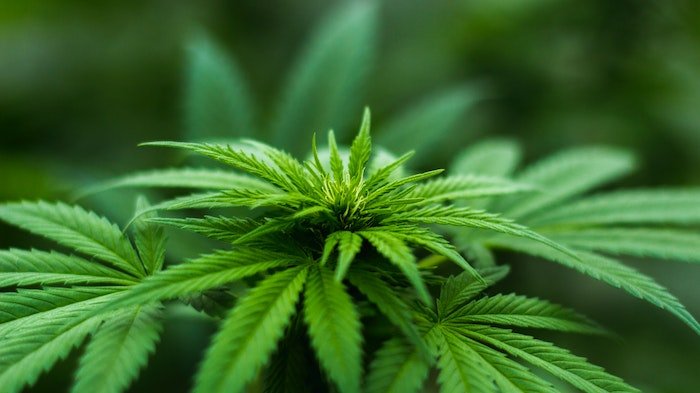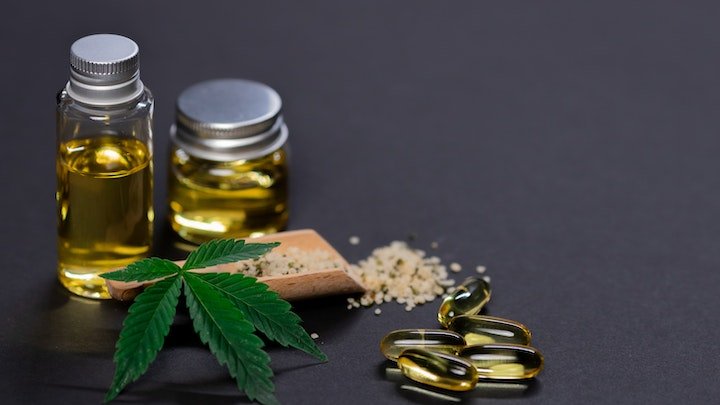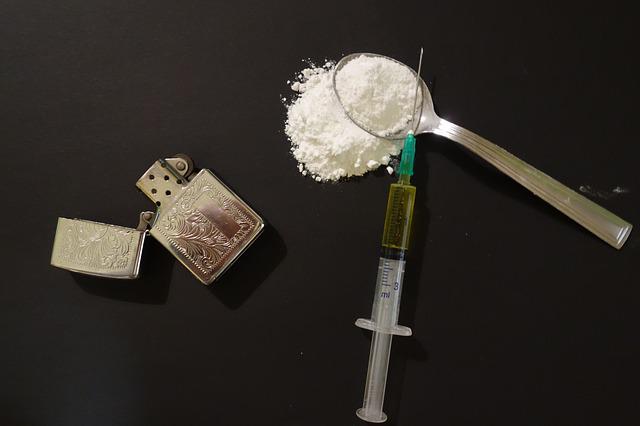Is Weed Bad for You? The Negative Health Effects of Cannabis
Cannabis is a plant-based psychoactive drug that comes from the cannabis sativa and cannabis indica plants.
There are many different types of cannabis, including:
- Hash: Hash is usually black or brown and the texture can either be hard or soft. It comes from the resin of the cannabis plant.
- Skunk: This is a type of weed that is green (bright, pale, or dark), covered in crystals, and is stronger than most other strains of weed.
- Dab: Dab can be used as an e-liquid in a vape pen. It is retrieved with butane, and it is a very concentrated form of cannabis.
- Weed: Weed is brown or green in colour, and it is made when the flowering parts and the leaves of the cannabis plant are dried.
- Cannabis oil: Cannabis oil is not as common as the previous types of cannabis. It is the colour of honey, and the texture is sticky.
Most cannabis smells musky and sweet, but it can vary in its potency.
Some common names for cannabis are: hash, resin, bud, dope, ganja, skunk, puff, grass, bhang, pot, herb, pollen and weed.
To learn more about how cannabis addiciton can impact your life, give our team a call today on 0800 088 66 86
What are the Statistics Of Cannabis Use in the UK?

Currently, cannabis is illegal in the UK, and it is a Class B drug. This wasn’t always the case, as it was labelled a Class C drug in 2004, but this was reversed just five years later.
It is legal to use cannabis for medical purposes, with certain restrictions in place. This change only occurred in 2018.
As of 2022, there are two cannabis-based drugs that can be used by doctors: Epidyolex for children with certain conditions that cause seizures, and Sativex to treat spasticity in people with Multiple Sclerosis.
Cannabis is the third most used drug after alcohol and tobacco in the UK. 10 million inhabitants of England and Wales aged between 16-64 have used cannabis at least once in their life.
Though cannabis is typically not associated with severe side effects, stronger strains are leading to worse mental and behavioural problems. This has led to a 50% increase in cannabis-related A&E admissions in the last five years.
The United Kingdom is on the list of the top 30 countries associated with cannabis use, but it is only number 26 on the list, with 6.2% of the population using the drug. This is much lower than Iceland (18.3%), the United States (16.3%), Nigeria (14.3%), and Canada (12.7%).
Don’t let cannabis addiciton control your life – call us today on 0800 088 66 86
Is Cannabis Addictive?

There are debates about whether cannabis is an addictive substance. One common theory is that it is not physically addictive, but it can cause physical withdrawal symptoms when someone stops consuming it.
It is also widely accepted that cannabis is psychologically addictive.
Studies suggest that 9% of people who use cannabis will become dependent on it.
Worryingly, this increases to 17% in users who are in their teenage years.
Beat cannabis addiction at a suitable drug rehab near you by calling us on 0800 088 66 86
Is Cannabis More Addictive Now than It Used to Be?

Yes, cannabis is more addictive now than it was in the past, as more potent strains are being sold. Higher potency cannabis has been associated with various physical and psychological issues, including an increased risk of psychosis.
This means that individuals are not under the same risk that they once were when they decide to use cannabis – they are much more likely to develop a dependency, or an addiction, to cannabis even after a single use.
The reason cannabis is more potent nowadays is that there tends to be more THC in it.
The amount of THC in marijuana is estimated to have risen from 4% to 12% between 1995-2014.
There are also specific types and strains of cannabis that have more THC than average. For example, the sinsemilla plant contains at least 10% THC, but it can rise to 30% in some strains.
Learn more about the nature of cannabis addiction and its role in modern society by calling our experts on 0800 088 66 86
Cannabis Dependence Vs Addiction

It is much more common for people to be dependent on cannabis than to be addicted. This is because cannabis is one of the less addictive drugs in the UK (and arguably it is not physically addictive at all).
However, it is certainly possible for people to be addicted to cannabis.
The difference between a cannabis dependency and a cannabis addiction is the presence of psychological symptoms that comes with addiction.
There would also be significant changes to the individual’s lifestyle as a direct result of drug use.
For example, they may stop going to school or work, they may lose any sense of motivation and ambition, and they may lose friends, partners and family members in order to pursue their addiction.
Think you might be dependent on cannabis? Talk it over with our team today on 0800 088 66 86
Is Cannabis a Gateway Drug?

Many people argue that cannabis is a gateway drug, and there is some evidence of this.
A 2021 study found that people who use cannabis are disproportionately more likely to use opioids than people who do not use cannabis. However, the evidence found was low in quality, reducing the reliability of the study.
There are also theories that cannabis indirectly affects the use of other drugs, as it can cause the user’s mental health to deteriorate, which makes them more likely to develop a substance use disorder due to using a more addictive substance, such as opioids.
Furthermore, people who have used cannabis for a long period of time, especially from a young age, may be more likely to develop an addiction to another substance later down the line.
That being said, the vast majority of people who use cannabis do not go on to use another drug, which is strong evidence that it is not a gateway drug.
Even if cannabis does not lead to the use of other illegal substances, it can still cause many negative health effects, which we will explain later on.
To learn more about how cannabis addiciton can impact your life, give our team a call today on 0800 088 66 86
What is the Difference Between CBD and Cannabis?

Cannabis is made up of two distinct cannabinoid compounds, THC (tetrahydrocannabinol) and CBD (cannabidiol).
The THC in cannabis is what causes users to feel high – it is a psychoactive ingredient. Users feel this high when they smoke cannabis, consume it as an edible, or take it as a capsule.
On the other hand, CBD does not produce a high. It is often used for medicinal purposes and comes as an oil, supplement, extract, gel, gummy and much more. CBD is produced by extracting it from the cannabis plant, either from the cannabis itself or the hemp.
What is Cannabis Laced/Cut With?

Cannabis is not always cut, but many people use cannabis without realising it may have been laced with another substance e.g. ketamine, cocaine, PCP, heroin, tobacco, fentanyl, methamphetamine or LSD.
This is sometimes done to increase the high that is felt when an individual uses cannabis. Some dealers may do this intentionally to cause their clients to crave stronger, more expensive substances.
However, it is very unusual for dealers to do this, so the risk is low. This is because they would lose money in the short term by selling more expensive drugs to their clients for a lower cost, with no guarantee that the client would then request harder drugs.
Yet, something that is common is dealers lacing cannabis with cheap substances to increase their profit. They may cut it with fuel additives, crushed glass, pesticides, or laundry detergent.
It goes without saying that cannabis that is laced with any of these substances is more dangerous to use. It may cause a wide range of symptoms, such as nausea, vomiting, headaches, nosebleeds, diarrhoea, and irritated eyes.
Don’t take the risk with unknown additives – beat cannabis use disorder by calling us on 0800 088 66 86
The Short-Term Negative Health Effects Of Cannabis

Many cannabis users experience short-term negative health effects as a result of their use, such as:
- Coordination problems
- Reduced reaction time
- Panic attacks
- Low blood pressure
- Increased heart rate
- Memory issues
- Poor judgement
- Migraines
- Light-headedness
- Sexual problems
- Vomiting
- Increased appetite
- Red eyes
There are also some short-term symptoms that are not visible, and therefore users may be at risk without realising.
For example, some studies suggest cannabis users have an increased risk of having a stroke.
It is also important to keep in mind that not all short-term symptoms of cannabis are negative, which is part of the reason people end up developing a dependency.
For example, many people feel euphoric after taking cannabis, and this is especially attractive for people who are facing challenges in their everyday life, such as financial issues, relationship problems, or mental health issues.
Have you started feeling the effects of cannabis abuse? Get the help you need by calling us on 0800 088 66 86
The Long-Term Negative Health Effects Of Cannabis

Some examples of long-term health issues that can be caused by cannabis are:
1. Reduced activity in the brain
Some research suggests that chronic, long-term use of cannabis can change the way the brain works.
One study found that THC damages the brain and causes certain parts to be less active when stimulated.
The result of this is often poor judgement, memory problems, coordination problems, poor concentration, and trouble with keeping track of time.
In some adolescents, IQ scores are lower than in people who do not use cannabis.
2. Lung damage
Inhaling any kind of smoke is bad for the lungs, but people who smoke cannabis may inhale more deeply and hold their breath longer than people who smoke cigarettes, which can cause more damage.
The lungs can be damaged in various ways by cannabis. Users may develop a wheeze, a chronic cough, excess phlegm production, shortness of breath, or they could even develop acute bronchitis.
3. Cancer
There may be an increased risk of lung cancer in individuals who smoke cannabis, due to the carcinogens found in cannabis smoke. There is also evidence of an increased risk of head and neck cancer.
One study found that people who have used cannabis for over 10 years are at an increased risk of developing testicular cancer. However, the evidence was not strong, and the same can be said for most studies linking marijuana use with cancer.
4. Heart problems
As we have discussed, using cannabis can increase your heart rate. If you are regularly using cannabis, your heart rate is subject to regular spikes, and this could increase your risk of having a heart attack.
Early research into cannabis use and the heart structure has found that regular use of cannabis may cause the left ventricle to expand, and the muscle wall to thicken. As a result, the heart struggles to pump blood around the body, which could lead to a heart attack.
Another potential heart problem for chronic cannabis users is arrhythmia.
A study into patients receiving medical cannabis treatment found that they had a 74% higher risk of arrhythmia, and this could be applied to people who regularly use cannabis recreationally.
5. Bone problems
There is evidence that heavy cannabis use is linked to a range of bone problems, including an increased risk for fracture, delayed bone healing, and lower bone mineral density.
As a result of the lower bone mineral density, chronic cannabis users have an increased risk of developing osteoporosis.
As with most studies relating to cannabis use, the evidence is not strong, and some people argue that cannabis can actually promote bone strength.
If the effects of your cannabis addiction have started to get significantly worse, then get help today by calling us on 0800 088 66 86
Can Cannabis Affect Your Mental Health?

There are many different mental health problems that can be linked to chronic, long-term cannabis consumption, as well as short-term cannabis use.
1. Temporary psychosis
When individuals use cannabis, they may experience temporary psychosis, which tends to go away within 24 hours. As part of this psychosis, they may experience hallucinations and paranoia.
This is unlikely to develop into a mental health condition such as schizophrenia, though it is possible if the individual is already at risk of developing this condition. If the cannabis user already has schizophrenia, they are at an increased risk of experiencing an episode when they consume the drug.
2. Lack of motivation
Research shows that people who have used a lot of cannabis, especially from a young age, have less dopamine.
This can cause them to struggle with motivation and ambition.
The long-term effects of this may be:
- Isolating oneself
- Missing out on important opportunities
- Losing jobs
- Becoming depressed
The lack of motivation can cause the individual to turn to cannabis for comfort or for a rush of dopamine, and therefore the cycle can continue for a long time.
3. Mental health conditions
A 2021 study found that people who use cannabis are more likely to develop poor mental health.
This includes common mental health conditions such as depression and anxiety, as well as more severe conditions.
However, it is tricky to claim that cannabis use directly causes poor mental health.
This is because people who struggle with their mental health are more likely to use cannabis, so this may be the main reason for the association.
Cannabis users are also more likely to be using harder drugs, and therefore we do not know how much blame to assign to cannabis when it comes to individuals suffering mentally, as their symptoms may be worsened by the other substances they are taking.
If your mental health has been worsening in tandem with cannabis use, talk to our experts on 0800 088 66 86
Pregnancy & Cannabis Use

Pregnant women who use cannabis are more likely to give birth to babies with health issues, neurological development issues and lower birth weights.
There is also the risk of a newborn baby inhaling second-hand smoke, and developing health problems as a result of this.
As your child grows up, early evidence suggests they may be more likely to deal with memory problems, behaviour problems, a poor attention span, and poor problem-solving skills.
Don’t put your health or that of your child at risk – get help today by calling us on 0800 088 66 86
What to Do If Your Loved One is Addicted to Cannabis?

If someone in your life is addicted to cannabis, we encourage you to ask yourself some questions to determine what their level of need is, and how you can help them.
1. Does your loved one admit to using cannabis? Do they admit to having an addiction?
If your loved one will not admit to using cannabis in any capacity, it will be very hard for you to help them to get sober, as they are clearly unwilling to be honest about their problem.
This is not a personal slight against you – secrecy is very common in any addiction, as drug users don’t want to worry their families, and they may also feel ashamed of their drug use.
It is possible that your loved one will admit that they use cannabis, but they won’t admit to having an addiction. This is slightly easier to handle, as you can explain what the definition of addiction is, and get them to accept that they are struggling.
However, you cannot force them to admit they are addicted, as they may either be in denial, or they may not want you to know about their struggles.
If you are in this situation, it is best to speak to an addiction specialist about what you can do. You can call us to speak to one of our expert advisers, and they will give you advice about how to tackle this situation without destroying your relationship with your loved one.
2. Do they have anyone in their life who is enabling their addiction?
It is very important to find out whether your loved one has someone in their life who is enabling their cannabis addiction, as this can influence them to delay recovery, or to neglect recovery entirely.
If this applies to you, we recommend encouraging your loved one to spend more time with the people who have their best interests at heart, and who will provide the necessary support to help your loved one get sober.
Often, enabling doesn’t look like discouraging treatment, but it looks like subtly allowing a friend or family member to engage in addictive behaviours without putting boundaries in place.
For example, someone may allow your family member to use drugs in their house with the promise that it will be kept secret, or they may give them money to fund their addiction.
In this situation, it is possible that the enabler simply needs to be educated on addiction and how to handle a family member’s addiction. You could try speaking to them about the importance of establishing boundaries, but the best solution would be to encourage the family member to find a therapist who specialises in cannabis addiction.
If it is a close family member, you could even engage in family therapy so that the whole family learns the dos and dont’s of supporting someone who is dealing with cannabis use problems.

3. Do they have anyone in their life who is encouraging them to get sober?
You should also try to find out whether there is anyone else in their life who is willing to promote abstinence-based recovery. Having a united front against cannabis use may result in your loved one seeking treatment, as they will realise how much their cannabis use is affecting those around them.
If you need to, you could even stage an intervention with the help of the people who are encouraging your family member to pursue sobriety.
You would all write a letter explaining how the cannabis use is affecting you negatively, and then you would read out your letters to your loved one in an attempt to get them to seek treatment.
Please keep in mind that addiction is a sensitive subject, and plenty of cannabis users will feel targeted when their family approach them about their addiction, even if it is handled with care.
For this reason, try to avoid bringing shame into the conversation, and instead follow the disease model of addiction.
This involves accepting that addiction is an illness that is affecting your loved one, so you may tell them that you know they aren’t trying to hurt anyone, and that you understand that they are struggling, too.
However, you would then put an emphasis on the fact that they are the only person who can seek treatment, so it is vital that they consider attending rehab if they want to try to get sober.
4. What is their cannabis use like? (Dose, frequency, and timeframe)
It is important that you find out what your loved one’s cannabis use is like so that you can determine how severe their addiction is. If they are using high doses of cannabis on a regular basis, and they have been doing this for a long time, they are more at risk of developing dangerous symptoms.
It is important to note that you can’t always tell how severe a dependency or addiction is. Sometimes, people hide their use habits, and this makes you think they are only engaging in addictive behaviours occasionally.
Even if your loved one doesn’t make an effort to conceal their addiction, you cannot always tell how much they are struggling by how much they are using.
Some people develop an addiction very quickly, and experience strong cravings for the drug, whereas others can use cannabis for many years before becoming addicted.
Take care when finding out about your loved one’s addiction, as you don’t want to make them feel like they are a patient and you are their doctor.
This means you should gently ask them how much cannabis they are using and when, and explain that you are doing this to find out how much risk they are facing, rather than to judge them.
Get your loved one the help they need by giving our expert team a call today on 0800 088 66 86
Frequently Asked Questions About Cannabis

Below, we provide some FAQs in relation to cannabis:
How long does cannabis take to work?
If you smoke cannabis, it usually takes just a few minutes for you to feel the effects. Some people start to feel the effects up to 10 minutes later. If you take edibles, it could be a few hours until you feel the effects.
How long do the effects of cannabis last?
When you smoke cannabis, the effects can last a few hours, but this depends on how much you smoke. Some people may stop feeling symptoms after just half an hour of smoking.
When you take edibles, you tend to feel the effects for up to 4 hours, and sometimes longer.
Where is cannabis legal?
We have already mentioned that cannabis is currently classed as a Class B drug. The substance is illegal in many other countries, including France, Denmark, Japan, Iceland, Brazil, and parts of the United States.
On the other hand, the use of cannabis has been legalised in many nations, including:
- South Africa
- The Netherlands
- Mexico
- Malta
- Canada
- Jamaica
- Thailand
- Parts of the United States
Can you go to rehab for cannabis addiction?
Yes, you can go to rehab for cannabis addiction in the UK, and you may find other people at the rehab facility who are also recovering from cannabis addiction.
Generally, you will not have a detox when you go to rehab, as cannabis is not believed to be physically addictive.
However, you will go to therapy every day while you are staying at the drug clinic.
As you will not need a detox, you might stay at rehab for a shorter length of time than the average 28 days. However, this can be extended if you believe you need additional help with getting sober.
As well as residential rehab, you can also access outpatient treatment and other remote services. There will be a wide range of local resources available to you depending on where you live, such as:
- Drop-ins
- Self-help meetings
- Educational workshops
If you have any further questions regarding cannabis use, call our team today on 0800 088 66 86
Get Treatment For Cannabis Addiction With Rehab Recovery

We are a treatment referral service for people struggling with substance use, which includes cannabis. When you contact us, we recommend a type of treatment to you, which is usually private drug rehab, but it can also be an outpatient programme or a home detox.
Fortunately, the waiting lists are virtually non-existent with private drug rehabs, as you fund it yourself. This means that you can access treatment very quickly, so you do not have to wait for your addiction to deteriorate before you get the opportunity to work with medical professionals to get sober.
Inpatient treatment costs anywhere between £3,000-£12,000 for a standard residential rehab facility, but luxury treatment centres can charge much more than this.
Outpatient treatment is cheaper as you continue to live at home, and home detoxing is cheaper still, but neither of these options is appropriate for someone with severe cannabis addiction.
We strongly believe that when you take responsibility for your recovery, there is a much better chance that you will be able to stay sober for good.
This is why we encourage you to consider which type of treatment you would like, including the specific types of therapy, as this allows you to have more control over the resources you are provided with.
Rehab facilities are also passionate about this approach, which is why they allow you to help formulate your aftercare plan, which is a form of relapse prevention that is implemented when you leave rehab.
We hope this reassures you that you are not giving up all control by choosing to seek professional help for your cannabis addiction.




